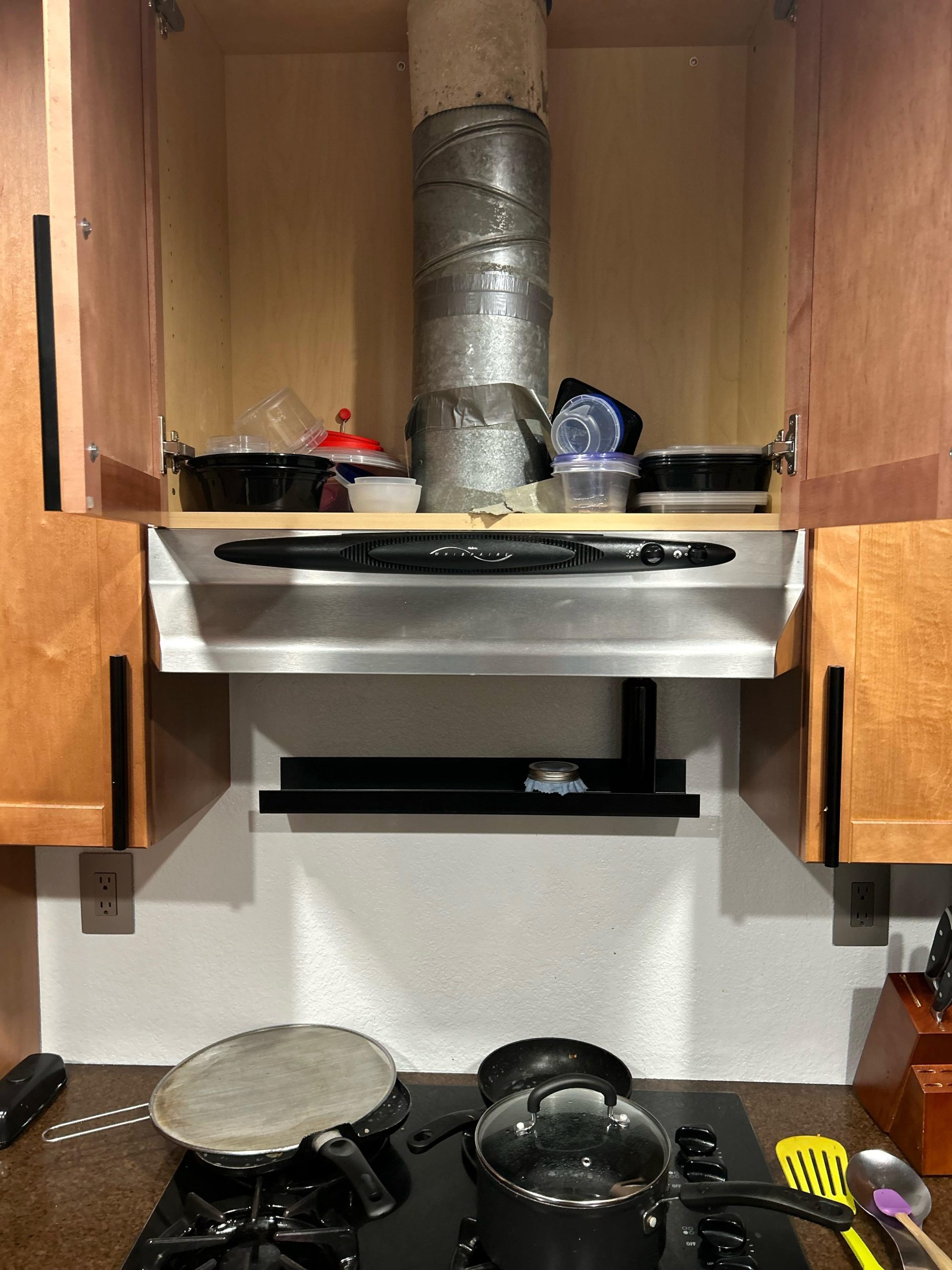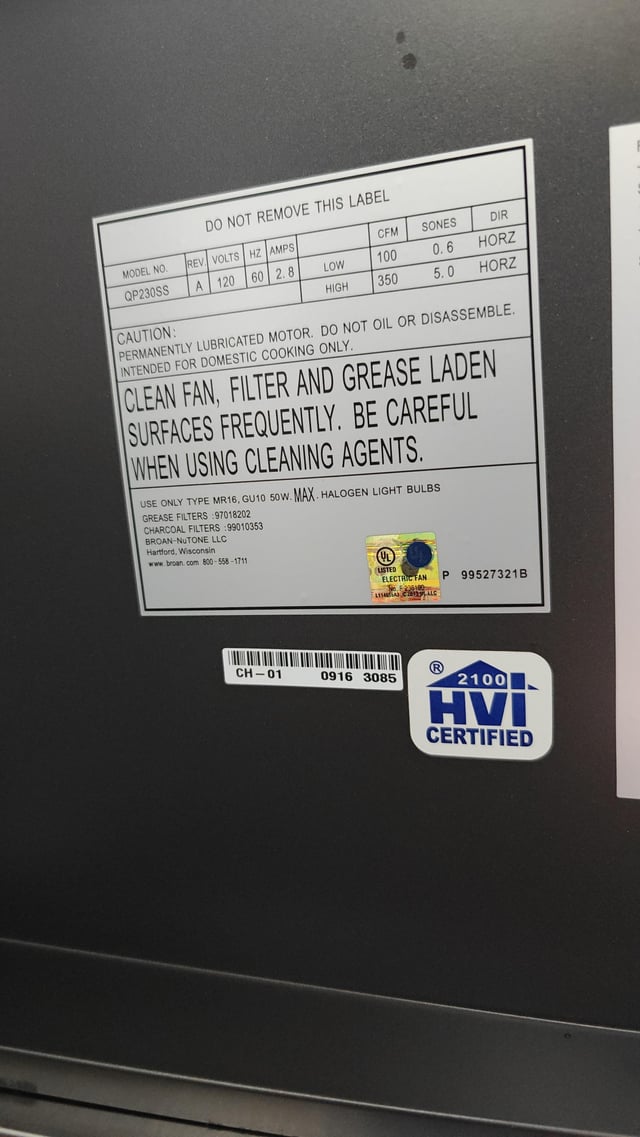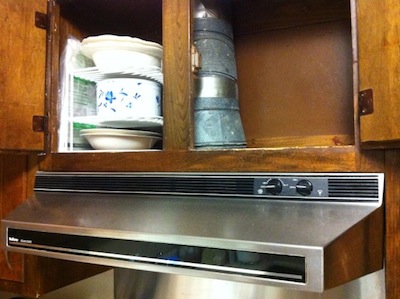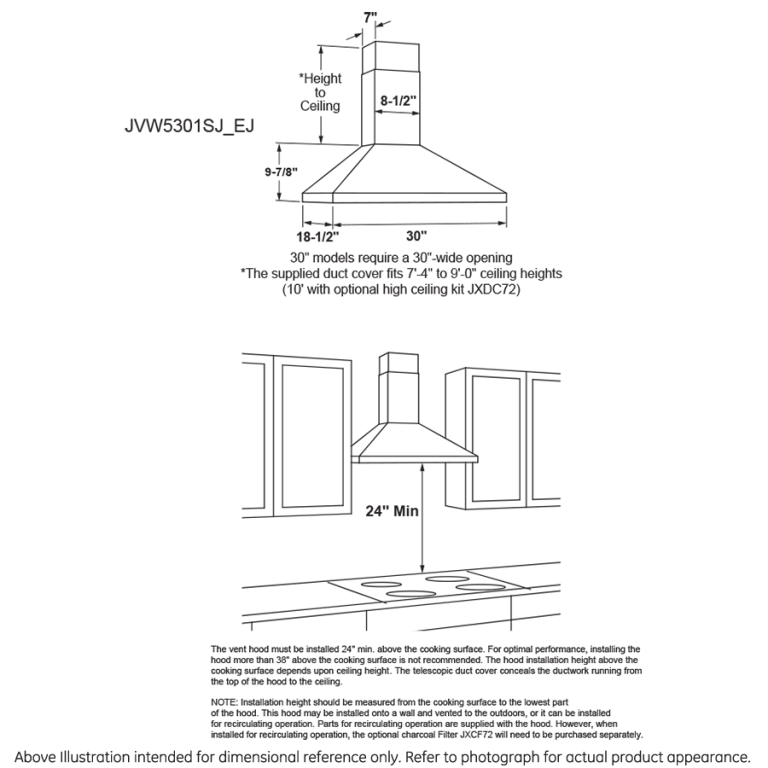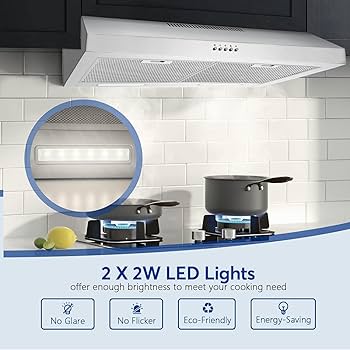Your range hood is dripping water when it rains because of a leak in the roof or venting system. This issue can lead to water damage and mold growth if not addressed promptly.
A range hood is an essential kitchen appliance that helps eliminate smoke, steam, and odors. However, it can sometimes become a source of frustration, especially when it drips water during rainstorms. This problem typically arises due to leaks in the roof or issues within the venting system.
Identifying and fixing the source of the leak is crucial to prevent water damage and potential health hazards like mold. Regular maintenance and timely repairs can keep your range hood functioning efficiently and ensure a dry, safe kitchen environment.
Credit: www.diychatroom.com
Causes Of Range Hood Dripping Water
Poor ventilation can cause water to drip from your range hood. The vent may not be able to push out moisture effectively. This can lead to water buildup inside the hood. A well-ventilated kitchen helps prevent this issue.
Blocked ducts are another common cause. Debris and grease can clog the ducts. This blockage prevents moisture from escaping. Cleaning the ducts regularly can help. It ensures proper airflow and reduces water dripping.
Condensation buildup occurs when warm air meets cold surfaces. This is common during rains. The moisture from the rain can cause condensation inside the hood. Installing proper insulation can reduce this problem.
Credit: www.diychatroom.com
Impact Of Weather On Range Hoods
Heavy rain can cause water to enter the vent system. This water can accumulate and drip from the range hood. High humidity levels make the problem worse. Moist air can condense inside the ductwork. Proper sealing of the vent system is crucial. Ensure all joints are tight and sealed to prevent leaks.
Sudden changes in temperature can affect your range hood. Cold air meets warm air and forms condensation. This condensation can accumulate and drip. Insulating the ductwork helps to minimize this issue. Proper maintenance reduces the risk of water build-up.
Identifying The Problem
A range hood dripping water during rain often indicates poor venting or a damaged exterior vent cap. Proper inspection can reveal leaks or blockages. Identifying these issues early helps prevent further damage and ensures efficient kitchen ventilation.
Inspecting The Vent
Check the vent on the roof or wall. Make sure it is not damaged. Look for any signs of wear or tear. A broken vent can let water in.
Checking For Blockages
Check for blockages in the vent. Debris can clog the airflow. Use a flashlight to see inside. Clean out any leaves, dirt, or nests. Blockages can cause water buildup.
Assessing Duct Insulation
Inspect the duct insulation. Poor insulation can cause condensation. Make sure the duct is well-insulated. Insulation helps to prevent water from forming.
Preventive Measures
Clean your range hood filters monthly. Check for clogs in the ducts. Remove any debris you find. Inspect the fan to ensure it’s working well. Lubricate moving parts if needed.
Ensure your range hood is installed correctly. The duct should slope slightly downwards. This prevents water from getting trapped. Make sure all joints are sealed tightly. This keeps out rainwater.
Install vent caps on the exterior of your home. These caps keep rain out of the duct. Choose a cap that fits snugly. Regularly check the cap for damage. Replace it if it’s broken or worn out.
Diy Solutions
Dirty ducts can cause water buildup. Use a vacuum cleaner to remove debris. Check for any blockages that might trap water. Clean the ducts at least twice a year.
Small leaks can cause water to drip. Use silicone sealant to fix them. Apply the sealant around all joints and seams. Let it dry for at least 24 hours before using the range hood again.
Insufficient insulation can lead to condensation. Wrap the vent with insulation material. This helps to keep the temperature stable. Insulation reduces the risk of water drips during rains.
When To Call A Professional
Your range hood may have serious issues if you notice persistent water drips. Strange noises during rain are also a bad sign. Rust or mold around the hood is another warning. Wet spots on the wall or ceiling need quick attention. Electrical problems are very dangerous. Call a professional for these issues.
Find a technician with good reviews. Ask friends or family for suggestions. Check for proper licenses and insurance. Look for experience with range hoods. Get quotes from several technicians. Compare prices and services. Choose someone who explains the problem clearly. Make sure they offer a warranty on their work.
Long-term Solutions
Improving your ventilation system can stop water from dripping. A better system can move air faster. It can also stop moisture from building up. You might need to add or change vents. This helps keep your kitchen dry. Waterproof vents are a good choice. They keep rain out. Also, clean your vents often. Dirt can block air flow. This makes your system work less well.
New range hoods often have better protection. They keep water out even during heavy rain. Look for hoods with built-in shields. These shields block rain. Some hoods also have better seals. These seals stop water from getting inside. Stainless steel hoods are a good option. They last longer and resist rust. Remember to check the hood’s warranty. Good warranties cover water damage.

Credit: us.ciarraappliances.com
Cost Considerations
Repairing a leaking range hood can be costly. Factors like the extent of water damage and roof condition influence expenses. Proper inspection helps in accurate cost estimation.
Diy Costs
Fixing a range hood yourself can save money. Basic tools and materials cost $50-$100. This includes caulk, sealant, and screws. You may need a ladder, which costs around $30. DIY fixes can save money but take time and effort.
Professional Service Charges
Hiring a professional can be more expensive. Service charges range from $100 to $300. Professionals have the right tools and experience. They can fix the problem quickly and efficiently. Paying for expert help can offer peace of mind.
Long-term Savings
Fixing the range hood can save money over time. Preventing water damage avoids costly repairs. Sealing leaks can reduce energy bills. A well-maintained range hood lasts longer. Spending money now can save more in the future.
Frequently Asked Questions
Why Is My Range Hood Leaking During Rain?
Your range hood may leak due to improper venting or a damaged roof cap. Water can seep through gaps, causing drips.
Can Rain Cause Damage To My Range Hood?
Yes, rain can cause damage if water enters the vent. This can lead to rust, electrical issues, or mold.
How Do I Stop My Range Hood From Leaking?
Check and seal any gaps in the vent system. Ensure the roof cap is properly installed and undamaged.
What Are Common Causes Of Range Hood Leaks?
Common causes include poor vent installation, damaged roof caps, and blocked vents. Regular maintenance can prevent these issues.
Conclusion
Addressing a dripping range hood during rain is crucial. Regular maintenance and proper installation can prevent issues. Check for leaks and ensure correct venting. A well-functioning range hood keeps your kitchen safe and efficient. Don’t ignore these signs; take action to protect your home.
